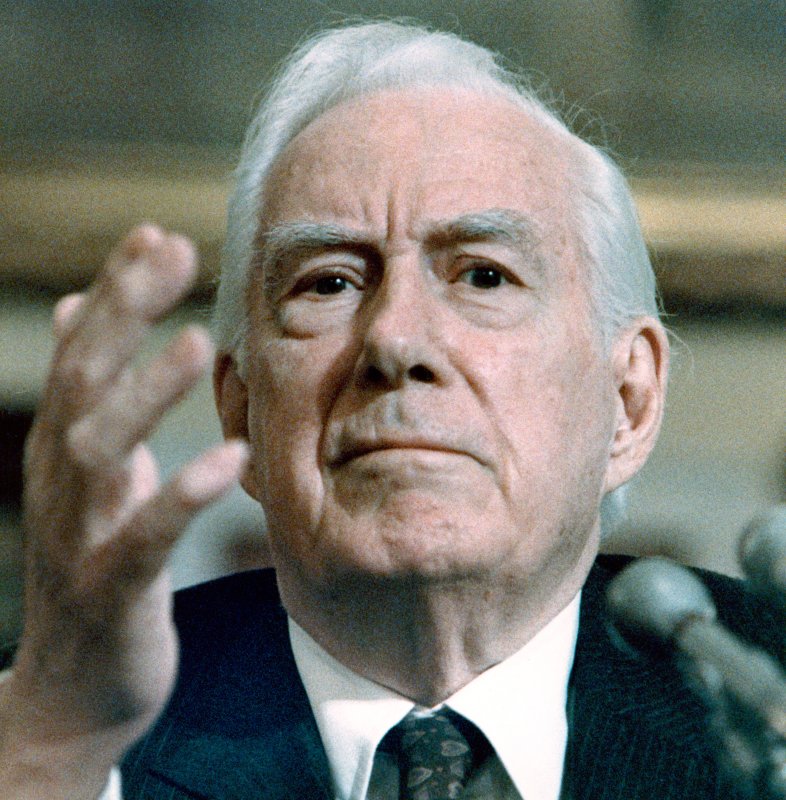1 of 2 | Retired former Chief Justice of the U.S. Supreme Court Warren Burger testifies before the House Committee on Post Office and Civil Service on February 2, 1987 in Washington on President Reagan’s proposed pay raise to government employees. Burger said more judges have resigned since 1969, more than 50, than in the previous 180 years and cited repeated refusals of highly competent lawyers to serve on the federal bench, traditionally a singular honor. (UPI Photo/Leighton Mark/Files) |
License Photo
WASHINGTON, July 26 (UPI) -- Judges appointed to the secret Foreign Intelligence Surveillance Court are largely conservatives with experience in the executive branch, an analysis has found.
Critics say that background makes them more likely to defer to government requests for domestic spying, The New York Times reported Thursday.
Republican presidents appointed to the bench 10 of the 11 judges assigned to the secret courts by Chief Justice John G. Roberts Jr., the Times found in an analysis of judges selected for the court since it was created in 1978.
Six of the 11 once worked for the federal government.
Previous chief justices Warren Burger and William Rehnquist, both conservatives, also named judges to the intelligence court, but their selections were more ideologically diverse, the analysis revealed. Under those justices, 66 percent of the selections were Republican appointees, while only 39 percent had prior jobs in the executive branch.
Timothy Edgar, who has advised both the Bush and Obama administrations on civil liberties related to intelligence issues, said, "If the court is seen as skewed or biased, politically or ideologically, it will lose credibility."
Sen. Richard Blumenthal, D-Conn., says the study shows "people with responsibility for national security ought to be very concerned about the impression and appearance, if not the reality, of bias -- for favoring the executive branch in its applications for warrants and other actions."
Blumenthal has proposed the chief judges from each of the 12 major appeals courts pick a district judge for the surveillance court. The chief justice would continue to name an appellate panel, but six other Supreme Court justices would have to sign off on the selections.
Rep. Adam Schiff, D-Calif., has introduced a bill that would give the president the power to name the surveillance court judges, with the approval of the Senate.















